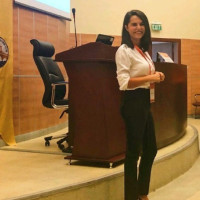Research Article
Issue Reviewers







 0000-0001-7584-8389
0000-0001-7584-8389

 0000-0003-0070-4318
0000-0003-0070-4318


 0000-0002-2186-927X
0000-0002-2186-927X
Aim & Scope
İstanbul Commerce University Journal of Science is a peer-reviewed science journal published in Spring and Fall semesters (2 issues per year) since 2002. The aim of the journal is to be an international, respected, scientific journal that publishes original studies in the fields of Basic Sciences and Engineering Sciences, develops the existing scientific literature and presents it to scientific circles.
Turkish and English manuscripts submitted to our journal are published in two main categories:
- Research Paper
- Review Article
According to the UAK Science Fields classification in our journal;
From the Basic Field of Science and Mathematics;
Chemistry
Math
Physical
Statistics
From the Engineering Fundamentals;
Civil Engineering
Chemical Engineering
Computer Science and Engineering
Electrical electronics Engineering
Electronics-Communications Engineering
Industrial Engineering
Mechanical Engineering
Mechatronic Engineering
Metallurgical Engineering
scientific articles written in the fields of science are included.
Author Guidelines
2. Manuscripts should be written in "Times New Roman", 10 pt and single-spaced.
3. 16x24 cm page size should be used for the page layout, top 2 cm, bottom 2 cm, and right 1,8 cm and left 2 cm margins should be left on the edges and each page should be numbered.
4. On the first page of the article,
- The title of the article should be written in centered, 12 points, bold and capital letters. Below the title, the Turkish title of the article should be written in 10 points, centered.
- The name of the author should be written in 10 point bold under the headings.
- Author's or authors' institutions, contact information and the internationally valid “ORCID” information should be added to the bottom of the first page as footnotes for each author.
- Abstracts of 100-200 words written in Turkish and English should be given in 7 points. Abstracts should not overflow to the 2nd page.
- At the bottom of the abstracts, at least 3 and at most 5 keywords reflecting the whole study should be listed in alphabetical order and given in 7 points.
5. The text of the article should start from page 2.
6. All sections and headings of the manuscript, including the Introduction and Conclusion, should be numbered and written in 10 font size and bold. One line space should be left before and after the headings.
First-degree chapter titles should be centered and capitalized.
Second-degree subheadings should be left-justified, and the first letter of each word should be capitalized.
Third-degree subheadings should be left justified, only the first letter of the first word and proper nouns should be capitalized.
7. All images (photographs, drawings, diagrams, graphs, maps, etc.) that do not contain tables in the manuscripts should be called "figures". Tables and figures should be given a title (sequence number and name). Headings should be written at the top in tables, and the headings should be written below in figures. Table and figure captions should be centered. The initials of the words in the title should be capitalized. One line space should be left after the table title and before the figure title. Possible reference information for tables or figures should also be given after the title of the table or figure.
8. Sequence numbers to be given in the equations should be in parentheses and on the right.
9. APA7 spelling rules should be used in references and citation. E.g;
• Single author; (Smith, 1989), (Yılmaz, 2018, p. 32)
• Two authors; (Coleman & Berrie, 1990)
• Multiple authors; (Smith et al., 1993)
• If more than one work by an author in the same year is used as a source; (Smith, 1992a), (Smith, 1992b)
• Same surname and different first names (R.D. Luce, 1959), (P.A. Luce, 1986)
• Alphabetically when the references are more than one (Dinçkol, 1986; Lalik et al., 1998; Oğuz, 1997)
• For a first-time reference to publications that are the work of an institution or group (Turkish Psychological Association [TPD], 1997); in later iterations of this source (TPD, 1997)
• “unknown date” as n.d. (Magenta, n.d.) in Undated Studies
• In anonymous articles (Anonymous, 1976)
10. In the references to be added at the end of the article, the authors should be listed alphabetically according to their surnames.
11. A source work that is not shown in the content of the study should not be included in the bibliography.
12. If more than one work of an author in the same year will be included in the references, phrases such as “a, b, c” should be placed after the publication date. (1992a) (1992b)
13. In the References
- Books
Author(s) Surname, Initials. (Year). Title of book, Publisher, Place of Publication.
Sevilengul, O., (2004). General accounting, Gazi Publishing House, Ankara.
- Editorial Book
Editor(s) Surname and Initials. (edt.) (Year). Title of book, Publisher, Place of Publication.
Şenyüz, K. (edt.) (2004). Jewelry design, Urart Publishing & Distribution, Istanbul.
- Articles in Journals
Author(s) Surname, Initials. (Year). Title of article. Name of Journal. Volume(Number), page range. Doi Number if available
Ertuna, Ö. (2004). Debt crisis of Ottoman and Turkish economies. Journal of Accounting & Finance, 24, 6-22.
In articles with two or more authors,
Jonck, F., Walt, F. & Sobayeni, N. (2017). Investigating the relationship between work values and work ethics: A South African perspective. SA Journal of Human Resource Management, 15. https://doi.org/10.4102/sajhrm.v15i0.780
- Document from the Website
Author(s) Surname, Initials. or website Name (Year). Content title. Retrieved ...... from ....
İstanbul Commerce University (2020). İstanbul Commerce University news. Retrieved June 1, 2020 from https://www.ticaret.edu.tr/Haberler/Detay/id/1369
- Theses
Author's Surname, Initials. (Year). Title of Thesis [Masters/PhD Thesis ]. Name of University. Name of Institute. L ocation.
Kontlar, F. (2013). Spectral behaviors of operators in some spaces [Master Thesis], Istanbul Commerce University Graduate School of Naturel and Applied Sciences, Istanbul. - Symposium and Congress Papers
Author(s) Surname, Initials. (Year, mounth, day), Paper Name. Symposium Name. Symposium Place. Page Ranges.
Yener, A. (2014, Aug, 25-28). Nonlinear degenerate parabolic partial differential equations on Heisenberg group. 3rd International Eurasian Conference on Mathematical Sciences and Applications. Vienna, 152-153.
Second Line should be written with 0,5 cm space.
NOTE: Dear authors who will send articles to our journal for publication, must comply with the spelling rules shown. However, authors who have to cite a source that is not included in these rules and show their quotation in a paragraph; You can find reference procedures on the following site or in the book.
*https://apastyle.apa.org/style-grammar-guidelines/citations
* American Psychological Associaton (2019). Publicaton manual of the American Psychological Associaton (7th edition). APA. Washington, DC.
Journal e-mail address: fendergi@ticaret.edu.tr
Authors should inform the editorial board of their communication addresses or other contact information.
Ethical Principles and Publication Policy
The publication processes of the Istanbul Commerce University Journal of Science and Technology are based on the impartial production, development and sharing of information using scientific methods.
Peer-reviewed articles are studies that ensure the application of the scientific method and impartiality. All components of the publication process in the realization of scientific production; The publisher, editors, authors, reviewers and readers are required to abide by the ethical principles. In this context, the publication ethics and open access policy of the Istanbul Commerce University Journal of Science and Technology, in line with the guidelines and policies published by the Committee on Publication Ethics (COPE) in open access (For example, the "Code of Conduct and Best Practice Guidelines for Journal Editors” and “COPE Best Practice Guidelines for Journal Editors”) require that all components of the publication process comply with ethical principles.
When situations such as manipulating, distorting and using fabricated data used in the articles are detected, this situation will be reported to the institution where the article author works, and the article will be rejected. Our journal has the right to request output files of the analysis results from the authors according to the feedback given by the editor and/or referees.
While establishing the ethical duties and responsibilities below, they have been prepared as open access, taking into account the guidelines and policies published by the Committee on Publication Ethics (COPE).
2. ETHICAL RESPONSIBILITIES OF THE AUTHORS
The author(s) who submit a study to the Istanbul Commerce University Journal of Science and Technology are expected to comply with the following ethical responsibilities:
• The publication processes implemented in the Istanbul Commerce University Journal of Science and Technology form the basis for the development and distribution of information in an impartial and respectable manner. The processes implemented in this direction are directly reflected in the quality of the work of the authors and the institutions that support the authors. Peer-reviewed studies are studies that embody and support the scientific method. At this point, it is important that all stakeholders of the process (authors, readers and researchers, publisher, referees and editors) comply with the standards for ethical principles. All stakeholders are expected to have the following ethical responsibilities within the scope of publishing ethics of Istanbul Commerce University Journal of Science.
• The works submitted by the author(s) are expected to be original. If the author(s) benefit from or use other works, they are required to cite and/or cite completely and accurately.
• Persons who do not contribute to the content intellectually in the creation of the work should not be specified as authors.
• Situations and relationships that may constitute a conflict of interest, if any, of all studies submitted for publication should be disclosed.
• Raw data regarding their articles can be requested from the author(s) within the framework of the evaluation processes, in such a case the author(s) should be ready to present the expected data and information to the editorial board and scientific committee.
• The author(s) must have a document showing that they have the right to use the data used, the necessary permissions for the research/analysis, or the consent of the experimental subjects.
• In case the author(s) notices an error or error in their published, early appearance or evaluation phase, they are obliged to cooperate with the editor in informing, correcting or withdrawing the journal editor or publisher.
• Authors cannot have their work in the application process of more than one journal at the same time. Each application can be started following the completion of the previous application. A study published in another journal cannot be sent to Istanbul Commerce University Journal of Science.
• Changing the author responsibilities of a work whose evaluation process has begun (such as adding an author, changing the order of authors, removing an author) cannot be proposed.
3. EDITORIAL DUTIES AND RESPONSIBILITIES
The editors and field editors of the İstanbul Commerce University Journal of Science and Technology, on the basis of the "COPE Code of Conduct and Best Practice Guidelines for Journal Editors" and "COPE Best Practice Guidelines for Journal Editors" published by the Committee on Publication Ethics (COPE) as open access, should have duties and responsibilities:
3.1. General Duties and Responsibilities
Editors are responsible for every publication published in İstanbul Commerce University Journal of Science. In the context of this responsibility, editors have the following roles and responsibilities:
• Making efforts to meet the information needs of readers and authors,
• Ensuring the continuous development of the journal,
• Conducting processes to improve the quality of studies published in the journal,
• Supporting freedom of thought,
• Ensuring academic integrity,
• Continuing business processes without compromising intellectual property rights and ethical standards,
• Demonstrating openness and transparency in terms of publication on issues that require correction and clarification.
3.2. Relations with the Reader
Editors should make decisions by considering the knowledge, skills and experience expectations of all readers, researchers and practitioners. It should be careful that the published studies contribute to the reader, researcher, practitioner and scientific literature and that they are original. In addition, editors are obliged to consider the feedback from readers, researchers and practitioners, and to provide explanatory and informative feedback.
3.3. Relations with Authors
The duties and responsibilities of the editors towards the authors are as follows:
• Editors should make a positive or negative decision based on the importance, original value, validity, clarity of the narrative, and the journal's goals and objectives.
• New editors should not change the decisions made by the previous editor(s) for studies unless there is a serious problem.
• "Blind Refereeing and Evaluation Process" must be published and the editors must prevent deviations that may occur in the defined processes.
• Authors should be informed and returned in an explanatory and informative way.
3.4. Relations with Referees
The duties and responsibilities of the editors towards the referees are as follows:
• The referees should be determined in accordance with the subject of the study.
• It is responsible for providing the information and guides that the referees will need during the evaluation phase.
• It has to consider whether there is a conflict of interest between the authors and the referees.
• In the context of blind refereeing, the identity of the referees should be kept confidential.
• Encourage reviewers to evaluate the work in an impartial, scientific and objective language.
• It should determine practices and policies that increase the performance of referees.
• Take necessary steps to dynamically update the referee pool.
• It should prevent rude and unscientific evaluations.
• Take steps to ensure that the referee pool is broad.
3.5. Relations with the Editorial Board
Editors must ensure that all editorial board members follow the processes in accordance with editorial policies and guidelines. The editorial board should inform its members about the publication policies and keep them informed of the developments. In addition, editors;
• It should ensure that the members of the editorial board evaluate the work impartially and independently.
• New editorial board members should be determined as contributing and suitable.
• The members of the editorial board should send studies suitable for their field of expertise for evaluation.
• Must interact regularly with the editorial board.
• Regular meetings should be held with the editorial board for the development of publication policies and the journal.
3.6. Relations with Journal Owner and Publisher
The relationship between the editors and the publisher is based on the principle of editorial independence. In accordance with the written contract between the editors and the publisher, all decisions taken by the editors are independent of the publisher and the journal owner.
3.7. Editorial and Blind Review Processes
Editors; is obliged to implement the "Blind Refereeing and Evaluation Process" policies included in the journal's publication policies. In this context, the editors ensure that the fair, impartial and timely evaluation process of each work is completed.
3.8. Quality Assurance
Editors; is responsible for publishing every article published in the journal in accordance with journal publication policies and international standards.
3.9. Protection of Personal Data
Editors; is obliged to ensure the protection of personal data regarding the subjects or images included in the evaluated studies. Unless the explicit consent of the individuals used in the studies is documented, they are responsible for refusing the study. In addition, editors; is responsible for protecting the individual data of the author, referee and readers.
3.10. Ethics Committee, Human and Animal Rights
Editors; It is responsible for ensuring the protection of human and animal rights in the evaluated studies. Ethics committee approval for the subjects used in the studies is responsible for refusing the study in the absence of permission for experimental research.
3.11. Precaution against Potential Misconduct and Misconduct
Editors; is obliged to take precautions against possible abuse and misconduct. It is among the responsibilities of the editor to share the relevant findings, as well as to conduct a rigorous and objective investigation regarding the identification and evaluation of complaints regarding this situation.
3.12. Ensuring Academic Publication Integrity
Editors should ensure that judgments containing errors, inconsistencies or misdirection in studies are promptly corrected.
3.13. Protection of Intellectual Property Rights
Editors; is obliged to protect the intellectual property rights of all published articles and to defend the rights of the journal and the author(s) in case of possible violations. In addition, the editors are obliged to take the necessary measures so that the contents of all published articles do not violate the intellectual property rights of other publications.
3.14. Constructivism and Openness to Discussion
Editors;
• It should take into account the persuasive criticisms of the works published in the journal and display a constructive attitude towards these criticisms.
• The author(s) of the criticized studies should be given the right to reply.
• Should not ignore or exclude studies with negative results.
3.15. Complaints
Editors; The author is obliged to carefully examine the complaints from the referees or readers and respond in an enlightening and explanatory manner.
3.16. Political and Commercial Concerns
The journal owner, publisher and no other political or commercial factors affect the editors' independent decision making.
3.17. Conflicts of Interest
Editors; takes into account the conflicts of interest between the author(s), referees and other editors, and ensures that the publication process of the studies is completed in an independent and impartial manner.
4. ETHICAL RESPONSIBILITIES OF REFEREES
Evaluation of all studies with "Blind Refereeing" directly affects the quality of the publication. This process provides confidence through an objective and independent evaluation of the publication. The evaluation process in Istanbul Commerce University Journal of Science is carried out with the principle of double-blind refereeing. Referees cannot directly communicate with authors, evaluations and comments are submitted through the journal management system. In this process, reviewer comments on evaluation forms and full texts are forwarded to the author(s) through the editor. In this context, it is expected that the referees evaluating the work for the Istanbul Commerce University Journal of Science and Technology have the following ethical responsibilities:
• Only work related to the field of expertise should accept evaluation.
• Evaluation should be done with impartiality and confidentiality.
• If he thinks he is facing a conflict of interest during the evaluation process, he should refuse to review the study and inform the journal editor.
• In accordance with the principle of confidentiality, they should destroy the studies they have examined after the evaluation process. They can only use the final versions of the studies they have reviewed after they are published.
• Make the evaluation objectively only in relation to the content of the study. Nationality, gender, religious beliefs, political beliefs and commercial concerns should not be allowed to influence the evaluation.
• Make the assessment in a constructive and courteous language. Do not make derogatory personal comments that include hostility, slander and insults.
• They should perform the work they accept to evaluate in a timely manner and with the above ethical responsibilities.
5. ETHICAL RESPONSIBILITIES OF THE PUBLISHER
Istanbul Commerce University Journal of Science Editors and Editorial Board act with the awareness of the following ethical responsibilities:
• Editors are responsible for all processes of studies submitted to Istanbul Commerce University Journal of Science. In this context, the decision makers are the editors, regardless of economic or political gains.
• It undertakes to create an independent editorial decision.
• Istanbul Commerce University protects the property and copyright of every article published in the Journal of Science and undertakes the obligation to keep a record of every published copy.
• It has the responsibility to take precautions against all kinds of scientific abuse, citation fraud and plagiarism regarding the editors.
If You Encounter an Unethical Situation
If you encounter any unethical behavior or content other than the above-mentioned ethical responsibilities and content in the Istanbul Commerce University Journal of Science, please report it to fendergi@ticaret.edu.tr via e-mail.
Click here to access the TR Dizin Ethical Principles Flow Chart.
In our journal, it is free for authors to publish their works as articles, and for readers to read and download articles. Likewise, no fee is charged during the referee evaluation and publication process. All issues of our journal can be accessed at DergiPark.
Manuscripts sent to our journal for publication are checked with iThenticate, a similarity checking software. Only manuscripts with a similarity rate ≤ 20% are included in the double-blind peer-review process. If the similarity rate is higher than 20%, the application is rejected.
The evaluation stages for the manuscripts sent to our journal are as follows;
1. The article is taken to Preliminary Review;
• The format of manuscript is checked and iThenticate programme is used for the plagarism.
• Compliance of the article with the sample article template is checked.
• Articles that do not fit the template are reported to the author and the article is requested to be corrected.
• Article presentation and copyright transfer form information is checked.
2. The article goes to the evaluation stage.
• The journal has double-blind peer-review system in which the referees and authors cannot see each other's information in the article review process.
• At least two referees are assigned to the article. Referees are given 21 days for review. If the evaluation process is not completed, an additional 7 days is given.
• Conclusion to the article can be rejection, correction or acceptance. According to the result, the following article/s are applied:
o If the article is rejected in line with the majority of the referee's opinions, the process is terminated and the article is rejected.
o In cases where one referee recommends rejection and the other referee recommends a major revision, a new referee is appointed or the article is rejected by consulting the Editor.
o In cases where one referee recommends rejection and the other referee recommends minor revision or accept, a new referee is appointed.
o If corrections are requested for the article, the author is requested to make them in line with the referee's comments. If the required revisions are not completed within 30 days, the article will be rejected.
o If the article is accepted, it goes to the editing stage.
3. At the layout stage, if some corrections needed, it is requested from the author.
4. The process is completed and a notification message is sent to the author.
5. When the required feedback from the referees cannot be received during the average article acceptance process; With the decision of the editor, the article can be returned and the process can be terminated.
The article review process is almost 3 months.
İstanbul Commerce University Journal of Sciences adheres to the Budapest Open Access Initiative and defines Open Access policy according to the definition developed in the original BOAI:
By "open access" to peer-reviewed scientific literature, we mean its free availability on the public internet, permitting any users to read, download, copy, distribute, print, search, or link to the full texts of these articles, crawl them for indexing, pass them as data to software, or use them for any other lawful purpose, without financial, legal, or technical barriers other than those inseparable from gaining access to the internet itself. [See, https://www.budapestopenaccessinitiative.org/read]
Price Policy
In our journal, it is free for authors to publish their works as articles, and for readers to read and download articles. Likewise, no fee is charged during the referee evaluation and publication process.
 This work is licensed under a Creative Commons Attribution-NonCommercial-NoDerivatives 4.0 International License.
This work is licensed under a Creative Commons Attribution-NonCommercial-NoDerivatives 4.0 International License.

